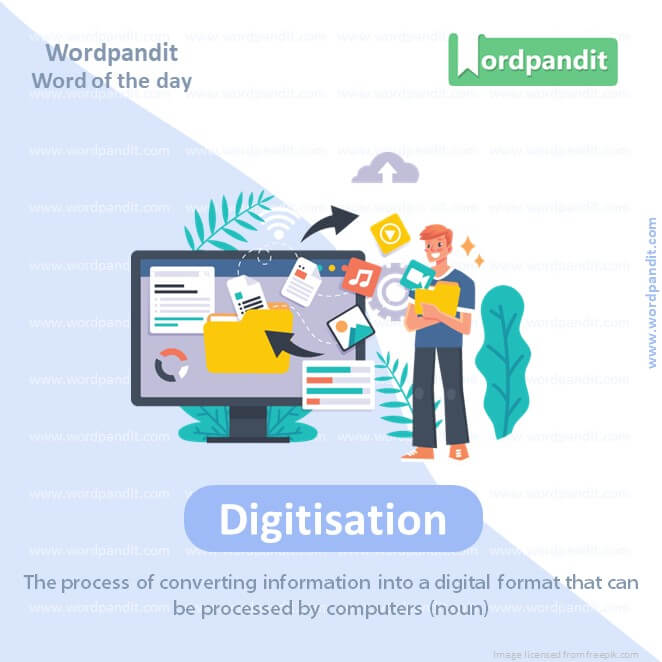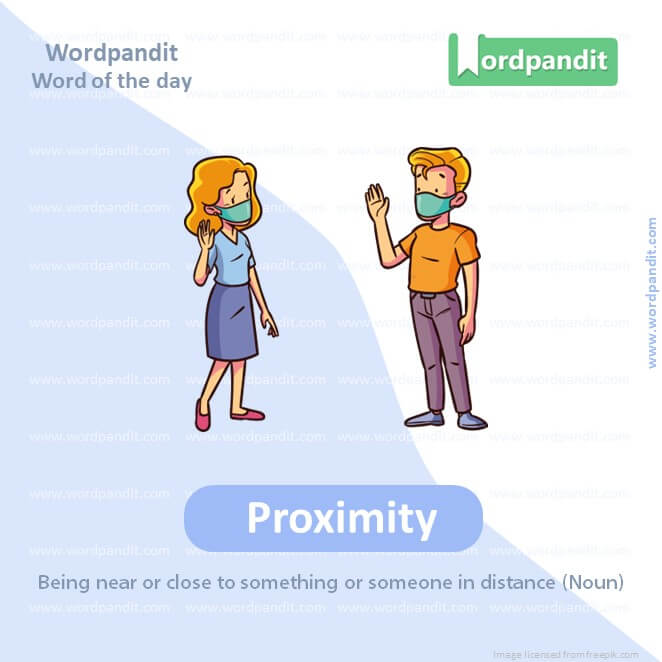Daily Vocabulary Words: List of Daily Used Words
Hi there. Welcome to this special section @ Wordpandit.
Our endeavour here is straightforward: highlighting important daily vocabulary words, you would encounter in The Hindu. This is your repository of commonly used words; essentially, we are posting a list of daily used words. Hence, this has significant practical application as it teaches you words that are commonly used in a leading publication such as The Hindu.
Visit the website daily to learn words from The Hindu.

WORD-1: Pegged
CONTEXT: It has pegged its gross and net market borrowing at Rs.14.13 lakh crore and Rs. 11.75 lakh crore respectively.
SOURCE: The Hindu
EXPLANATORY PARAGRAPH: Have you ever played darts and tried to hit the center of the board? Well, “pegged” is like when you aim for a specific spot and hit it right on target. It’s when something is fixed or set at a particular level, like setting the highest score you want to achieve.
MEANING: Attached or fixed in a specific position (verb).
PRONUNCIATION: pegd
SYNONYMS: fixed, set, anchored, established, determined
USAGE EXAMPLES:
1. The price of the product was pegged at $10 to attract more customers.
2. She pegged her expectations for the project based on previous performance.
3. The currency was pegged to the value of gold.
4. The company pegged its growth projections at 5% for the year.
WORD-2: Equitable
CONTEXT: Such a growth outcome can hardly be considered equitable or inclusive.
SOURCE: The Hindu
EXPLANATORY PARAGRAPH: Imagine sharing your toys with your friends so everyone gets the same number to play with. That’s being “equitable.” It’s when things are fair and balanced for everyone involved, like making sure everyone gets their fair share.
MEANING: Fair and impartial (Adjective).
PRONUNCIATION: ek-wi-tuh-buhl
SYNONYMS: fair, just, impartial, unbiased, even-handed
USAGE EXAMPLES:
1. The company strives to maintain an equitable workplace environment for all employees.
2. The judge’s decision was based on equitable distribution of assets in the divorce case.
3. The teacher divided the group project tasks in an equitable manner.
4. The new policy aims to ensure equitable access to healthcare for all citizens.

WORD-3: Ameliorated
CONTEXT: the stagnation or fall of agricultural prices in the market was not ameliorated by any rise in minimum support prices (MSP).
SOURCE: The Hindu
EXPLANATORY PARAGRAPH: Remember when you had a headache, and your mom gave you medicine, and you felt better afterward? That’s what it means to be “ameliorated.” It’s when something gets improved or made better, like when your headache goes away after taking medicine.
MEANING: Improved or made better, especially a situation or someone’s feelings (verb).
PRONUNCIATION: uh-MEEL-yuh-rey-tid
SYNONYMS: improved, bettered, enhanced, upgraded, alleviated
USAGE EXAMPLES:
1. The new medication ameliorated the patient’s symptoms.
2. His apology ameliorated the tension between them.
3. The changes to the policy ameliorated the situation for employees.
4. The renovation ameliorated the condition of the old building.
WORD-4: Fortuitous
CONTEXT: the fortuitous spurt of agricultural growth during the pandemic years was inadequate to reverse the long-term decline of agricultural growth beginning from the early-2010s.
SOURCE: The Hindu
EXPLANATORY PARAGRAPH: Have you ever found money on the sidewalk just when you needed it? That’s what “fortuitous” means. It’s when something good happens by chance or luck, like finding a four-leaf clover when you’re feeling lucky.
MEANING: Happening by chance or luck, often bringing good fortune (adjective).
PRONUNCIATION: fawr-TOO-i-tuhs
SYNONYMS: lucky, fortunate, serendipitous, unexpected, providential
USAGE EXAMPLES:
1. It was fortuitous that they found a parking spot right in front of the restaurant.
2. Her chance encounter with the CEO proved fortuitous for her career.
3. The rain stopped at a fortuitous moment, allowing the outdoor wedding to proceed.
4. His fortuitous discovery led to a breakthrough in scientific research.

WORD-5: Digitisation
CONTEXT: The announcement of the creation of a corpus of ₹1 lakh crore along with 50-year interest-free loans for research and development in the sunrise domains will no doubt bolster the country’s digitisation march while creating opportunities for emerging entrepreneurs.
SOURCE: The Hindu
EXPLANATORY PARAGRAPH: You know how you can play games on a tablet or watch cartoons on your computer? That’s because of “digitization.” It’s when things like pictures, books, or music are turned into digital form so they can be used on electronic devices like phones or computers.
MEANING: The process of converting information into a digital format that can
be processed by computers (noun).
PRONUNCIATION: dij-i-tuh-zey-shuhn
SYNONYMS: digitalization, computerization, conversion, transformation, modernization
USAGE EXAMPLES:
1. The digitization of libraries has made it easier to access books from anywhere.
2. The company invested in digitization to streamline its operations.
3. The digitization of medical records has improved efficiency in healthcare.
4. Digitization has revolutionized the way we consume media and entertainment.

WORD-6: Proximity
CONTEXT: the salaried class has no lobby to plead its case unlike the corporate sector which has much more reach and can use its proximity to the levers of power to achieve its goals.
SOURCE: The Hindu
EXPLANATORY PARAGRAPH: Imagine playing hide and seek, and you’re close to finding your friend hiding behind the couch. That’s “proximity.” It’s when things are near each other or close together, like being a few steps away from finding something.
MEANING: Being near or close to something or someone in distance (Noun).
PRONUNCIATION: pruhk-SIM-i-tee
SYNONYMS: closeness, nearness, adjacency, vicinity, propinquity
USAGE EXAMPLES:
1. The hotel’s proximity to the beach makes it a popular vacation destination.
2. The factory’s proximity to the residential area caused complaints about noise pollution.
3. They chose the apartment for its proximity to schools and shopping centers.
4. The proximity of the two events led some to speculate about a connection.
WORD-7: Innocuously
CONTEXT: an ‘interim Economic Survey’, innocuously titled “The Indian Economy: A Review”, has presented a survey of post-Independence economic development, with a periodisation that divides those years into the pre- and post-Modi government eras.
SOURCE: The Hindu
EXPLANATORY PARAGRAPH: You know when you play a prank on your friend, but it’s not mean or harmful? That’s “innocuously.” It’s when something is harmless or not likely to cause any trouble, like a funny joke that doesn’t hurt anyone’s feelings.
MEANING: Harmlessly or not likely to cause any trouble (adverb).
PRONUNCIATION: ih-NAH-kyoo-uhs-lee
SYNONYMS: harmlessly, innocently, inoffensively, unobtrusively, unassumingly
USAGE EXAMPLES:
1. The article innocuously mentioned her involvement in the project.
2. His comment, though innocuously intended, offended some people.
3. The plant innocuously grew in the corner of the garden, unnoticed by most.
4. She innocuously asked about his plans for the weekend.
WORD-8: Peppered
CONTEXT: In language reflective of an electioneering pamphlet, peppered with the Prime Minister’s own assessments of his government’s record, the document concludes that the decade 2014-24 was one of “transformative growth”.
SOURCE: The Hindu
EXPLANATORY PARAGRAPH: Imagine sprinkling salt and pepper on your french fries to add flavor. That’s like “peppered.” It’s when something is scattered or spread out in small amounts all over, like adding tiny dots of color to a painting.
MEANING: Scattered or spread out in small amounts all over (adjective or verb).
PRONUNCIATION: pep-erd
SYNONYMS: sprinkled, dotted, speckled, scattered, dotted
USAGE EXAMPLES:
1. The conversation was peppered with jokes and laughter.
2. Her speech was peppered with anecdotes from her childhood.
3. The field was peppered with colorful wildflowers.
4. The report was peppered with statistical data to support its findings.
WORD-9: Dividends
CONTEXT: The explanation for that hefty increase is that income from dividends and profits is slated to rise from ₹99,913 crore in 2022-23 to ₹1,54,407 crore in 2023-24 (RE).
SOURCE: The Hindu
EXPLANATORY PARAGRAPH: You know when you save your allowance every week, and at the end of the month, you have enough money to buy a toy? That’s like “dividends.” It’s when you get rewarded with something good, like extra money or success, because of your hard work or investment.
MEANING: Payments made by a company to its shareholders as a reward for their investment (noun).
PRONUNCIATION: DIH-vuh-dends
SYNONYMS: profits, earnings, returns, yield, gains
USAGE EXAMPLES:
1. The company’s decision to reinvest its profits rather than pay dividends disappointed shareholders.
2. He invested in stocks to earn dividends on his savings.
3. The board of directors announced an increase in dividends for the current fiscal year.
4. She relies on dividends from her investments as a source of income.

WORD-10: Prudence
CONTEXT: she has managed to keep the fiscal deficit, at 5.8% of GDP, marginally below the budgeted level, hoping to please financial markets with her government’s prudence.
SOURCE: The Hindu
EXPLANATORY PARAGRAPH: You know when you’re careful not to touch a hot stove so you don’t get burned? That’s being “prudent.” It’s when you’re cautious and think carefully before making decisions or taking action, like looking both ways before crossing the street.
MEANING: The quality of being careful and thoughtful in actions
and decisions (noun).
PRONUNCIATION: PROO-duhns
SYNONYMS: caution, carefulness, circumspection, discretion, wisdom
USAGE EXAMPLES:
1. He showed prudence by saving a portion of his income for emergencies.
2. The government’s prudence in managing the budget helped avoid financial crises.
3. She urged her children to exercise prudence when spending money.
4. The lawyer advised his client to proceed with prudence during the negotiations.
Vocabulary Hard Words
The experience of unraveling the depths of language learning often leads us to ‘vocabulary hard words’. These challenging jargons might seem daunting initially, but with the right learning strategies, the enigma of ‘vocabulary hard words’ can turn into an enticing quest. But how can these ‘vocabulary hard words’ be learned effectively?
Firstly, to master ‘vocabulary hard words’, it’s vital to break down the process into manageable steps. Instead of tackling several words at once, focus on understanding a few each day. This gradual approach ensures effective retention and understanding.
Multimedia resources tremendously aid in comprehending ‘vocabulary hard words’. Movies, podcasts, or even music in the target language contribute a comprehensive perspective. They provide real-life contexts and usages of ‘vocabulary hard words’, making them more understandable and less intimidating.
The incorporation of memory-enhancing techniques, such as flashcards or digital apps, can significantly bolster the retention of ‘vocabulary hard words’. Such tools encourage active recall, helping to cement these words into your long-term memory. Mnemonic devices can also aid in making these words more approachable by associating the hard words with relatable images or stories.
Practice is decisive when learning ‘vocabulary hard words’. Using these words in your conversations, written communications, or even social media posts will facilitate a robust understanding and recall.
Finally, do not worry about making mistakes while using ‘vocabulary hard words’. Mistakes are essential stepping stones in the learning process. They provide insights into areas that need more focus and help refine your grasp over these words.
In conclusion, grasping ‘vocabulary hard words’ is undoubtedly a challenging task but not an insurmountable one. With the aid of effective strategies including graded learning, multimedia resources, memory-enhancing tools, and regular practice, the process of mastering ‘vocabulary hard words’ can become an engaging and rewarding journey.













